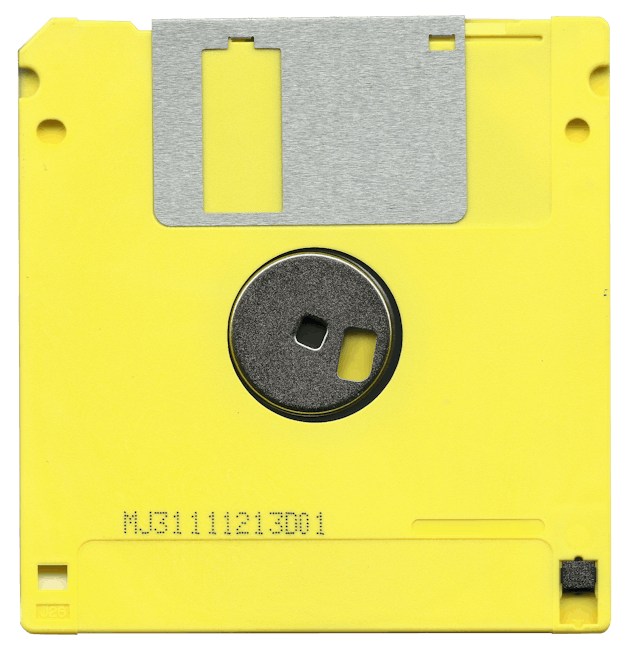Unlock encrypted content
Please enter your SSCE key to initiate on-the-fly decryption.
Decryption key: (Click cancel if you don't have the key)
Copied link to clipboard.
This feature is unavailable for free accounts. Upgrade now and enjoy all Premium benefits.
Go Premium!
This feature is unavailable for free accounts. Upgrade now and enjoy all Premium benefits.
Go Premium!
Please open this page in browser ( Google Chrome or Safari ) to use this feature.
Open In Browser
Data Deduplication: The Key to Efficient Cloud Storage and File Sharing
Random related video for this blog.
Copied share link to clipboard.
With the exponential growth of data and the increasing demand for collaboration across borders, businesses and individuals require robust solutions that can handle large volumes of information while ensuring data integrity and accessibility. This is where data deduplication comes into play, offering a revolutionary approach to storage and file sharing. In this article, we will explore the benefits and applications of data deduplication, along with other cutting-edge technologies such as cloud-native applications, nanotechnology, and autonomous driving, that are shaping the future of data management.
Data Deduplication: Maximizing Storage Efficiency and Reducing Costs
Data deduplication is a technique that eliminates redundant data by identifying and storing unique instances of information. Instead of saving multiple copies of the same file, data deduplication ensures that only one instance is stored, significantly reducing storage requirements and costs. This technology is particularly useful in cloud storage environments, where data duplication can be prevalent due to the collaboration and file sharing nature of the platform. By implementing data deduplication, cloud storage providers like FileLu can offer scalable and cost-effective solutions to businesses and individuals. With the ability to eliminate duplicate files, users can optimize their storage space, making room for more critical data without the need for additional hardware. This not only reduces costs but also improves overall system performance and responsiveness.Seamless File Integration and Advanced Search Capabilities
One of the key advantages of using cloud storage solutions like FileLu is the ability to seamlessly integrate files with third-party applications. Whether you need to share documents with colleagues, collaborate on a project, or integrate files with other productivity tools, FileLu's cloud-native applications provide a seamless experience. With just a few clicks, users can share files with anyone around the world, streamlining workflows and enhancing productivity. Furthermore, FileLu's advanced file search capabilities enable users to quicklylocate specific files or folders within their storage. Whether it's a document from months ago or a recent photo upload, the powerful search functionality ensures that users can access their files in an instant. This eliminates the need for manual sorting and organizing, saving valuable time and effort.
Compliance-Ready Storage Solutions for Data Security
In an era where data privacy and security are paramount, compliance-ready storage solutions have become essential for businesses operating in highly regulated industries. FileLu's compliance-ready storage ensures that sensitive data is protected according to industry standards and regulations. With encryption file sharing and end-to-end security measures, users can confidently share files while maintaining control over their data. For example, healthcare organizations dealing with patient data can securely store and share medical records using FileLu's compliance-ready storage solutions. Similarly, financial institutions can ensure the confidentiality and integrity of their financial records, mitigating the risk of data breaches and non-compliance.Driving the Future: Cloud-Native Applications, Nanotechnology, and Autonomous Driving
As technology continues to evolve, so do the possibilities and applications in the field of data management. Cloud-native applications, for instance, are gaining popularity due to their scalability and flexibility. By leveraging the power of the cloud, these applications can adapt to changing demands, ensuring optimal performance and user experience. Nanotechnology is another groundbreaking field that holds immense potential for revolutionizing data storage. With nanoscale components, researchers are exploring the possibilities of storing vast amounts of data in minuscule devices. This could lead to unprecedented storage capacities and data transfer rates, paving the way for even more efficient cloud storage solutions. Autonomous driving is yet another area where data management plays a crucial role. The sheer amount of data generated by autonomous vehicles necessitates scalable and reliable storage solutions. Cloud storage providers like FileLu can support the storage and analysis of vast amounts of data, enabling the development and deployment of autonomous driving technologies.Conclusion
In conclusion, data deduplication, cloud-native applications, nanotechnology, and autonomous driving are revolutionizing the way we store and share data. With data deduplication, businesses and individuals can maximize storage efficiency, reduce costs, and improve overall system performance. The seamless file integration and advanced search capabilities offered by cloud storage solutions like FileLu further enhance productivity and collaboration. Additionally, compliance-ready storage solutions ensure data security and regulatory compliance, catering to the needs of diverse industries. As we look to the future, emerging technologies such as cloud-native applications, nanotechnology, and autonomous driving hold the promise of even more efficient and innovative data management solutions.Frequently Asked Questions (FAQs)
Question: How does data deduplication work? Answer:
Data deduplication identifies and stores unique instances of data, eliminating redundant copies. This is achieved by comparing incoming data with existing data, and only storing new or unique information.
Question: Can data deduplication be used in personal file sharing? Answer:
Yes, data deduplication is beneficial for personal file sharing as it reduces storage requirements and costs. By eliminating duplicate files, users can optimize their storage space and share files more efficiently.
Question: How does nanotechnology impact data storage? Answer:
Nanotechnology has the potential to revolutionize data storage by enabling the storage of vast amounts of data in minuscule devices. This could lead to unprecedented storage capacities and faster data transfer rates.
Question: Are cloud-native applications scalable? Answer:
Yes, cloud-native applications are highly scalable. By leveraging the power of the cloud, these applications can adapt to changing demands and ensure optimal performance and user experience.
Case Studies 1. Company X: Implementing FileLu's data deduplication and compliance-ready storage solutions, Company X was able to reduce storage costs by 40% and improve overall system performance. The advanced file search capabilities also saved employees valuable time in locating critical documents. 2. Healthcare Provider Y: By leveraging FileLu's compliance-ready storage, Healthcare Provider Y ensured the secure storage and sharing of patient records. The encryption file sharing feature and end-to-end security measures helped maintain compliance with industry regulations and protect sensitive data. 3. Autonomous Vehicle Manufacturer Z: With the help of FileLu's scalable cloud storage solutions, Manufacturer Z was able to store and analyze vast amounts of data generated by autonomous vehicles. This facilitated the development and deployment of advanced autonomous driving technologies.
By Amelia Isabella
Email: [email protected]
Related
Scalable Cloud Storage Architecture for Biotechnology: Efficient and Secure Data...
June 9, 2023
Read More
Cutting-Edge Innovations for Seamless File Collaboration and Space Exploration.
June 9, 2023
Read More
Automated File Retention Policies and Drone Technology: Revolutionizing File Management.
June 10, 2023
Read More
The Future of Cloud Storage: Highly Available Infrastructure with Intuitive...
June 10, 2023
Read More
Secure Data Sharing and Collaboration with Biometric Authentication on FileLu...
June 10, 2023
Read More
Popular
Latest
The Future of Digital Transformation: Exploring Smart Homes, Efficient File...
November 30, 2025
Read More
Exploring the Benefits of Cloud Storage and Innovative Technologies in...
November 26, 2025
Read More
The Future of Technology: Exploring Biohacking, Space Tourism, and Digital...
November 23, 2025
Read More
The Future of File Sharing: Streamlined Workflows for Photographers and...
November 19, 2025
Read More
Exploring the Intersection of Technology: From Cybersecurity to Augmented Reality...
November 16, 2025
Read More
The Future of File Management: Embracing Edge Computing and Efficient...
November 12, 2025
Read More
The Future of File Sharing: Exploring User-Friendly Solutions and Data...
November 5, 2025
Read More
The Future of Cloud Storage: How FileLu Empowers Creative Professionals...
November 2, 2025
Read More
The Future of Autonomous Technologies: Innovations in Robotics, File Sharing,...
October 29, 2025
Read More
Emerging Technologies Revolutionizing File Management: From Li-Fi to Robust Collaboration...
October 26, 2025
Read More
Emerging Technologies: Exploring the Impact of File Access Auditing, Genetic...
October 19, 2025
Read More
The Future of Data Storage: Exploring Advanced Encryption, Mobile Integration,...
October 5, 2025
Read More
Exploring the Future of Data Management: Security, Efficiency, and Cognitive...
September 28, 2025
Read More
Revolutionizing Data Management: Innovations in Storage, Security, and Sustainable Technology.
September 24, 2025
Read More





















